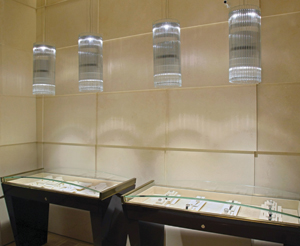
I was a wholesale diamond trader for 25 years. I worked deep in the heart of the famous Forty-Seventh Street Diamond District of Manhattan. When I tell people this, the first thing they ask me is, “Is it true that you guys make handshake agreements for millions of dollars?” Well, yes. To be accurate, the agreements are usually for thousands of dollars, accompanied by a scribbled signature in a yellow memo book. However, the agreements are based upon total trust. You simply assume that the other fellow is honest.
All the fun is in the negotiating that goes on before the deal is finalized. I made hundreds of deals—some good, some bad, some masterpieces, some bloopers— but I learned from everything. Here are seven pointers I learned during my 25 years in the business.
- Never argue. I have found that if there is an agreement to be made, it will be based on facts and logic—ultimately, it will be reasonable. If it isn’t reasonable, then it should not be made in the first place. So why should grown men and women argue when the facts are plain? Argument is all about ego, not about business.
- Never explain. Just lay the facts out on the table and let the other guy (or gal) figure it out. It’s presumptuous to try to do the thinking for someone else. The best way to close a deal is to let your customer talk himself into it.
- Always give the other guy (or gal) a chance to walk back in the door. Never hand out ultimatums to your customers. You have the right to stick to your price, but never act as if your price were handed to you on the mountain top by God. Who knows, maybe tomorrow you’ll need a little cash and may be willing to accept that offer. A nice smile with your refusal keeps the door open and says, “maybe tomorrow.”
- Always let the other guy think he has won. This is about abandoning your stupid ego and finding your smart ego. Your stupid ego wants everybody to know that you’re a winner. This is great when you are eight years old! An adult wins in secret and smiles to himself all the way to the bank.
- Try your best to close every deal with the caveat that you’re dealing with honest and reasonable people. So what if your profit turns out to be a little less than you want it to be? If you do good business with good people, you always win. They will always come back. They will tell others good things about you. Good business leads to more good business.
- Never back anyone into a corner. If someone makes a mistake, you’re probably gong to be disappointed with them. Kick them out of your business life if their mistakes become a habit. But if their “crime” is excusable, never take them to the wall for it. They know that they screwed up. You don’t need to hit them over the head with it the next time you negotiate. Just ask for what is reasonable, and they will almost always come through.
- Give every customer a reason to come back. In other words, don’t get greedy. Some guys cannot sleep at night unless they sold their stone for five percent over the going rate. Some have a genius for that sort of thing. I never did. I was good at maintaining fine product quality and good in customer relations.
The best deal I ever made was by accident. I bought a five carat antique diamond in an estate. I had a diamond cutter polish it and, to my amazement, it turned out to be a D-flawless—the most desired of white stones. I called up a friend of mine in Geneva and told him the story. He laughed and congratulated me and bought it over the phone. It was the largest sale and the largest profit I had ever made and, 20 years later, my friend and I still talk about it. The entire process from purchase to sale took three days. It was all based upon professionalism and good personal relationships.

